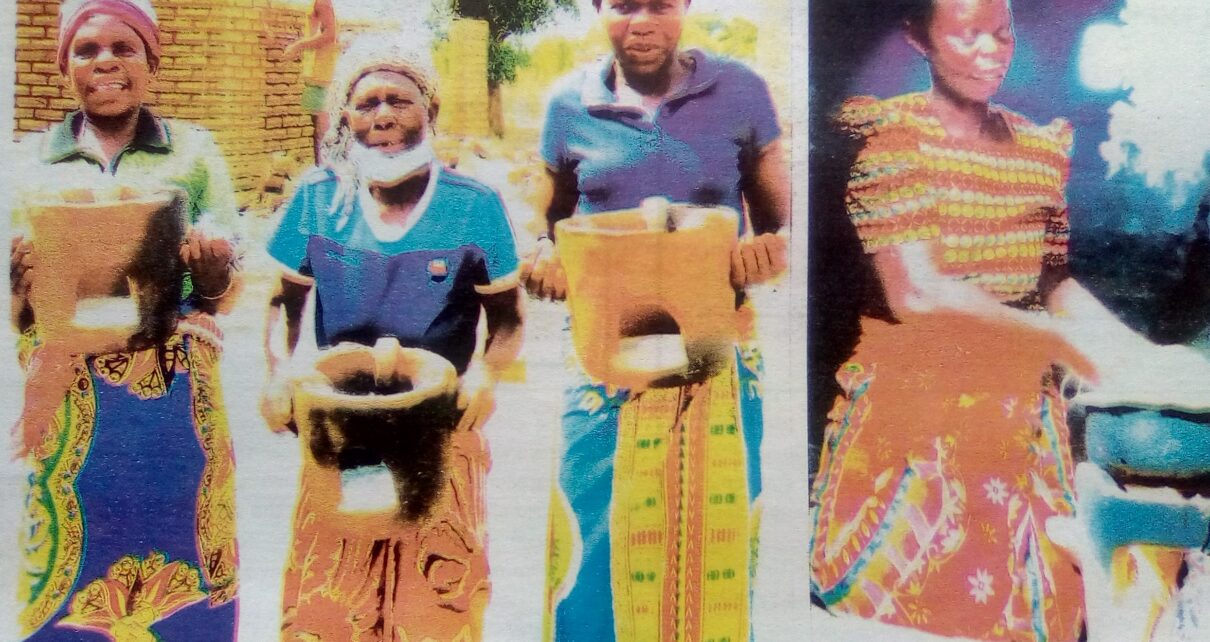
Lina Abani, 35 is determined to protect waning forests in Chanasa Village, Traditional Authority Nkhumba in Phalombe district.
Four years, her deforested rural community has been selling charcoal and firewood for survival, leaving the area with fewer trees, expanding bare grounds, silted streams and chronic flooding.
This is a common phenomenon in Malawi where 98 percent of the households cook using firewood and charcoal.
“We keep losing fertile soil, crops, livestock and other vital belongings due to environmental degradation, so we have to find lasting solutions to these problems,” she says.
Abani leads Mango Club, an all-women group of 20 which sensitises their community to the economic and health benefits of conserving forests and water.
They hold weekly village meetings to discuss the devastating impacts of the illegal trade in charcoal and firewood on their community. During the gatherings, they brainstorm solutions to shared problems.
She says: 2Since these meetings started people have gradually changed their mindsets. Together, we are exploring sustainable solutions for poverty alleviation instead of relying on the proceeds of charcoal and firewood business.
“We don’t have factories to employ people ransacking forests. Most people around Mulanje Mountain sell firewood and charcoal for survival, hurting the environmental.”
Abani’s group sells tree seedlings to the community members to replenish the lost forest cover. They also keep bees in the remaining forests, enhancing their income while protecting the trees.
“As group chairperson, it is my responsibility to ensure our green messages to the community bear fruit. We encourage women to use energy-serving cook stoves instead of open fireplaces with three stones. They use less firewood and emit less smoke. This protect women from smoky fumes typical of traditional cooking methods,” she says.
Emelida Chimalizeni, who uses the cook stoves widely known as Chitetezo Mbaula, says the group has awakened her community to appreciate their responsibility in conserving green spaces.
“We generate income from selling the cook stoves and honey. The profits give us the ease to send our children to school buy basic needs and acquire assets that we desire,” she says.
Mango Club is supported by the Sustainable Rural Water Infrastructure for Improved Health and Livelihood Project funded by the African Development Bank.
The project spearheaded by the department of Water Supply and Sanitation gives target groups technical expertise to protect endangered catchment areas and increase resilience of water systems in their communities.
Emma Mbalame, director of the Department of Water Supply and Sanitation, says environmental conservation is a must for the country of 18.4 million to have sustainable water access and economic growth.
District forestry officer Moses Mtambo says deforestation in Phalombe is rampant. The district council is working with communities to establish by-laws prohibiting abuse of natural resources.
He says: “We are engaging the communities, especially on the enforcement of natural resources by-laws to promote ownership and conservation of the forested areas.
“Rapid population growth exerts pressure on natural resources, especially when it comes to cooking, agriculture and construction of homes. We want to accelerate reforestation efforts by encouraging communities to have tree nurseries as well as tree-planting and management.”
Phalombe Forestry Officer is also promoting forest restoration through natural regeneration, a strategy which encourages communities to keep hands off waning forests to allow them sprout again.
They also promote the use of energy-serving cook stoves and other technologies that reduce the volumes of wood cut for fuel as well as income generating activities that motivate communities to protect trees.
The Ministry of Energy reports that about three quarters of Malawians in urban areas use illegal charcoal for cooking and heating compared to the 14.3 percent of the rural population.
About 81.7 percent of the rural majority use firewood, reports the ministry.
Source: The Nation_January 19, 2021_by Angella Phiri-Staff Reporter
